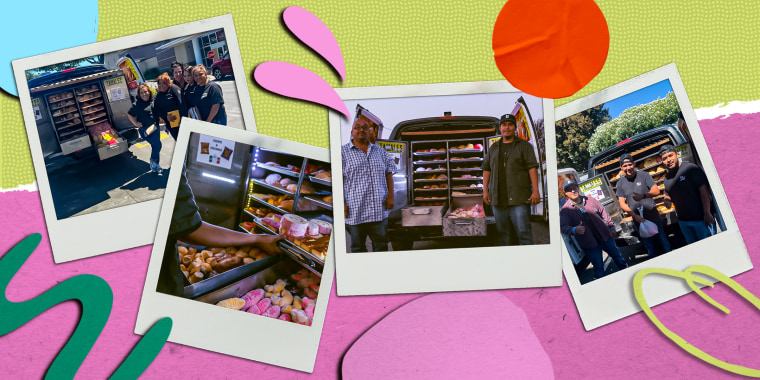As the relative calm of the afternoon fades into the temperate air of the evening, quiet suburbs across our nation are cut by familiar melodies. Folks of any city know the familiar tune of their local ice cream man, with their renditions of “Turkey in the Straw” blaring as they drive through lanes and up avenues. But when folks hear “La Cucaracha” in San Jose, California, people know that the panadería man is outside.
For over 25 years, Zeledon’s Bakery on Wheels has been serving the San Jose area and beyond, selling tamales, doughnuts, muffins and its signature pan dulce. Pan dulce, or Mexican sweet breads like the popular cookie-dough-topped concha or the maize-shaped elote bread, trace their common origin all the way back to when the Spanish brought wheat to Mexico City as early as the 1500s.
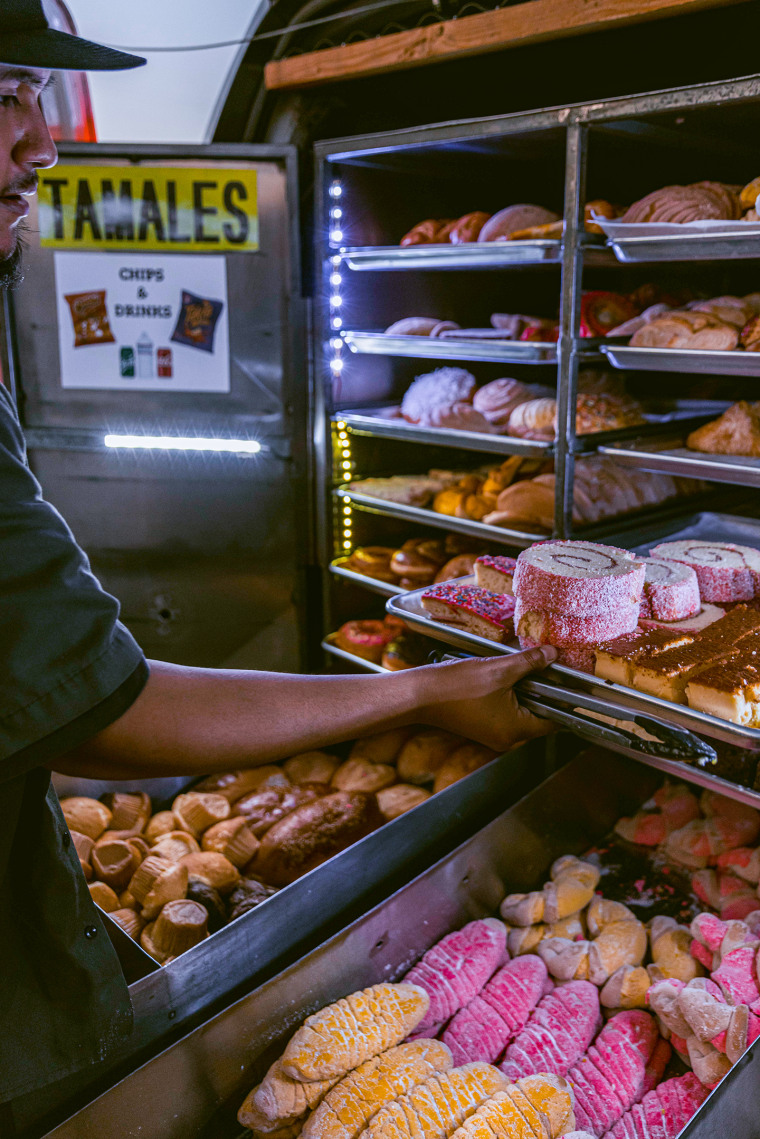
By combining Mexico’s culinary sensibilities with the European ingredient of flour, dessert innovation flourished. Pan dulce like the pig-shaped puerquito (or marranito) cookie are styled off the European gingerbread cookie, but are made with piloncillo, a type of sweetener made from sugar cane and spiced with cinnamon and anise — and these days, puerquitos often skip the ginger.
Pan dulce has many varieties, flavors and types — at least 1,000 in fact — and have steadily made their way throughout Mexico and beyond. Now in San Jose, the proprietors of Zeledon’s sell a prime selection of greatest hits, in a completely mobile business.
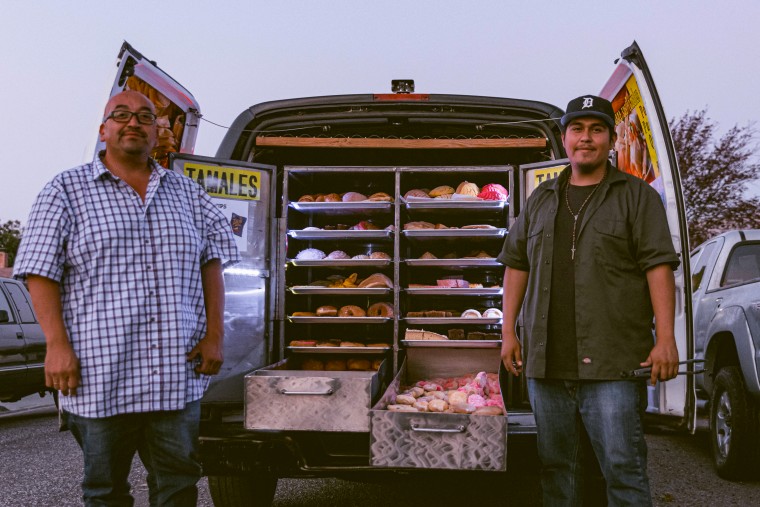
“Conchas, cuernos, puercos, polvorones, elotes, empanadas…,” Juan Carlos Soto, owner and proprietor of Zeledon’s Bakery on Wheels, told TODAY Food, listing the many items his mobile business holds every day, of which there are dozens. “We have a lot more bread, but that’s a lot of the popular ones.”
While the sight of a van with a trunk full of baked goods might seem like something of a fantasy to the most of the United States, Zeledon’s Bakery is one of a few businesses-on-wheels like it (like Los Angeles pan dulce truck Sweet LA) bringing a Mexican tradition to the states.
“Our family would always buy bread at a bakery in Mexico called Zeledon’s because it was so good,” said Soto. “So, years ago when we were looking for a name, we remembered that bakery and we took Zeledon’s and added the rest.”
“Everything’s mobile over there,” Soto's nephew, Ernesto Botello, told TODAY, adding that food carts, tricycles and other vehicles sell all sorts of foods and services in Mexican cities and villages, and Zeledon’s follows in that tradition. Some of these businesses sell bread, tamales, milk or bread and some sell Mexican ice creams, or paletas, which are made from scratch with ice, fruit and other flavorings. “They go sell them in the neighborhoods, ringing little bells and stuff. People come out and buy.”
Botello said that in Mexico, carts and tricycles play or activate unique sounds to indicate the type of business from which the noise is coming from. For instance, a camote cart, which sells wood-fired sweet potatoes and plantains, releases steam from the in-cart oven it’s cooking its product in, and a whistle announces (or shouts, really) the cart’s presence. Hence, the choice was made for the instantly recognizable Mexican folk tune “La Cucaracha” to accompany Zeledon’s and their drawers full of baked goodness.
“The pan dulce guy might have a song or something, but in Mexico, they usually just yell. So they don’t really have a horn,” Botello said. “I just came from Mexico, and we picked up the idea from L.A. — it all started there.”
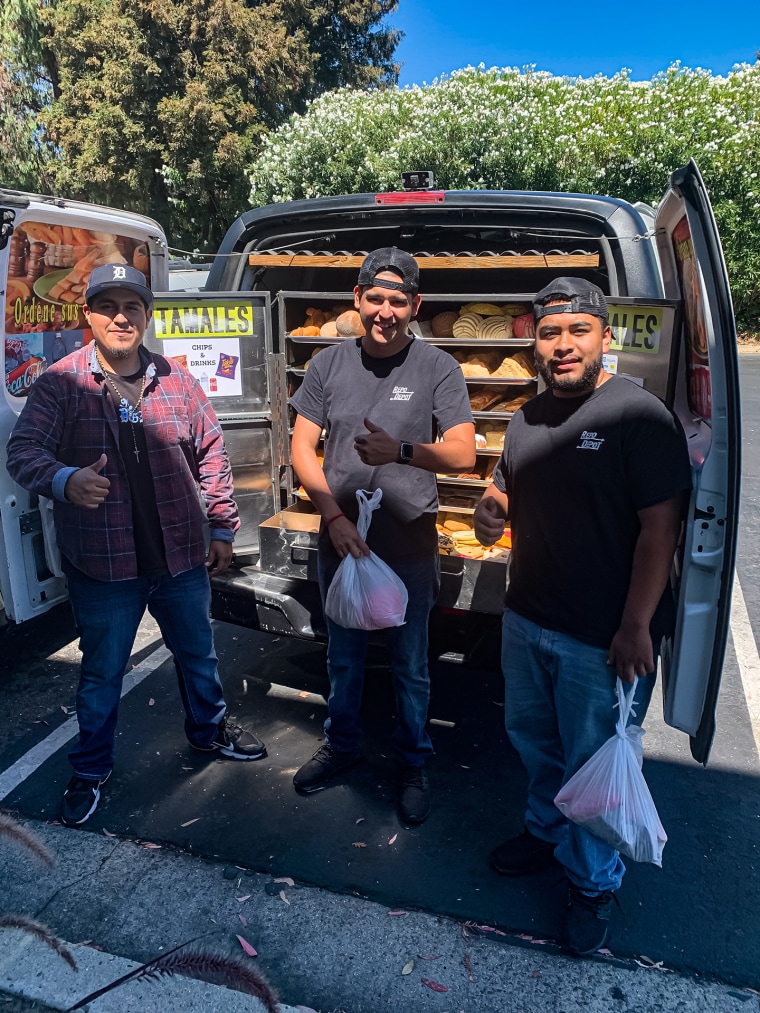
Soto and Botello said in Los Angeles it has been historically difficult to get permits for food trucks. This is because the city, where there are as many as 10,000 street vendors selling food, has had instituted requirements that have left out the concerns of non-kitchen-based and smaller food vendors until very recently.
Soto started his business with another partner in San Diego in the late '90s, but early on took the business over as an army of one, until Botello joined his uncle and learned the ropes.
“I took him on the weekends to sell bread with me,” Soto said, adding that his nephew became an unofficial salesman and later his right-hand man. “As he grew up, he kept on coming more days and on his school breaks and he became a real good seller, man. Like, honestly, he’s the best seller out there.”
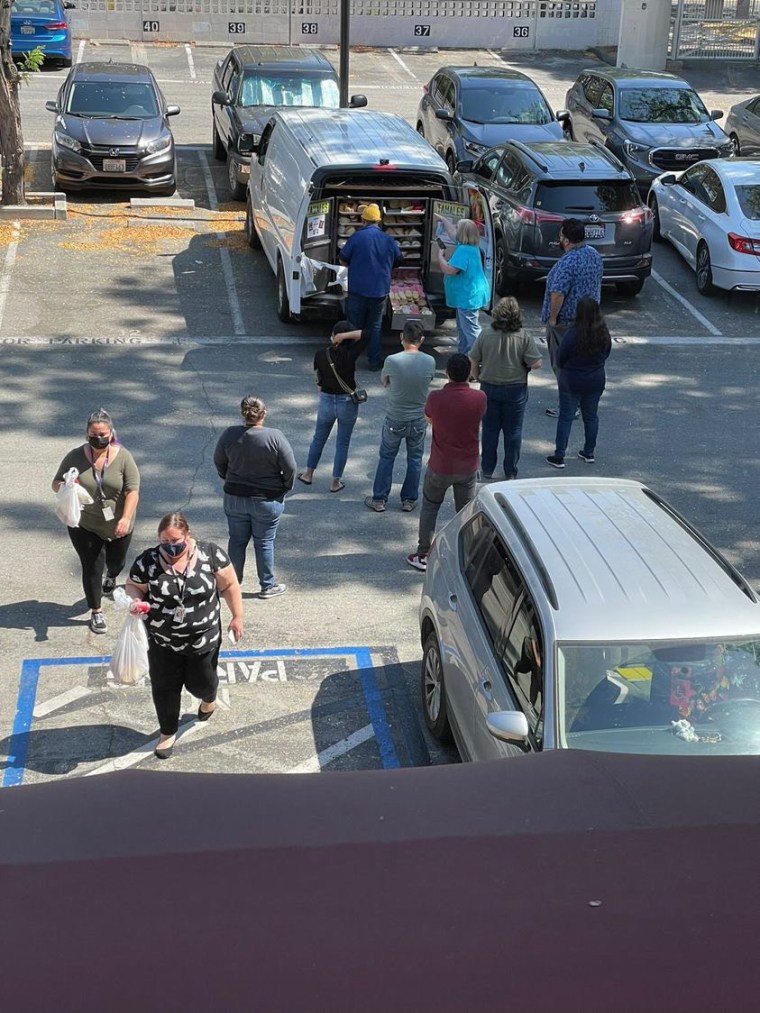
Soto is used to seeing his customers rush to catch him and his nephew, stopping whatever they’re doing — playing outside, cooking dinner or walking their dogs — to buy from Zeledon’s colorful selection of treats.
In fact, this fervent customer base has even been captured on social media more than once.
In early 2021, a TikTok by user @fatboyluvr408 depicting their mad dash to meet Zeledon’s parked outside their house garnered over 268,000 views, 21,300 likes and tons of comments expressing how they’re also regular customers and pointing out their favorite orders.
In June 2022, another TikTok showing Soto and Botello’s business by user @dianaaracelyyy, whose real name is Diana Davila, went even more viral, garnering 8.2 million views and 1.2 million likes. The whopping 17,800 comments boast admirers from as far away as Malaysia and as close as the neighborhoods Zeledon’s drives through — and Davila has a theory about why that is.
“I feel like he is bringing a tradition,” Davila told TODAY. “He’s bringing culture to neighborhoods, and I’m just so happy that he’s getting all of the well deserved recognition that he deserves.”
Davila said that creating videos representative of her culture and community is what truly fuels her, and during the pandemic, she started creating content that featured local or hidden gems and street vendors that were regulars in her area.
“Those who know him knew it was the pan dulce man, because of the distinct sound of the horn he has, the little music that he plays,” she said. “Once you hear that, whoever’s in the area that knows him rushes out, because he’s only there for a few minutes. If no one pops up, he’s like, onto the next.”
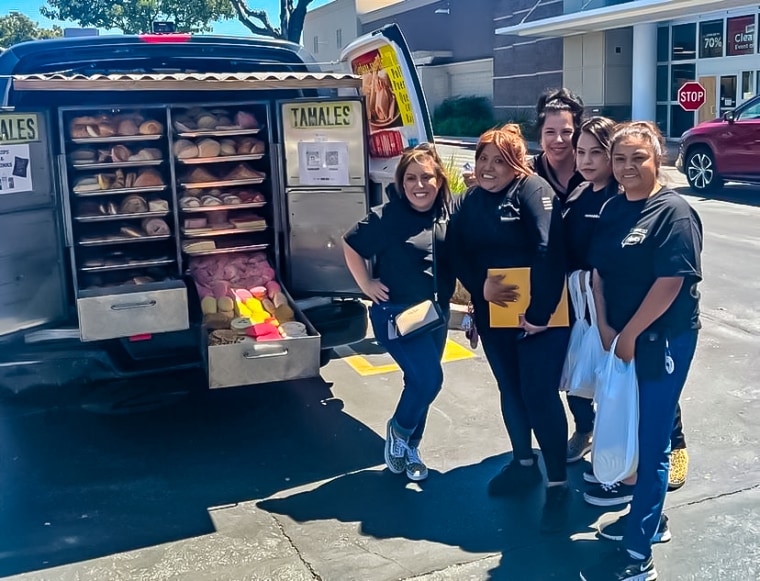
Being familiar with Zeledon’s since she had been a customer for years, even as a child, Davila knew she wanted to share a bit of her nostalgic feeling for the business with the rest of the world. When he drove through her neighborhood one day, she asked him if she could film him opening his van and listing some of the items he had to offer.
She also thought it was important to include him saying what types of bread he sold, because Mexican bread has so many varieties and types. The rest is internet history.
Of the love they’ve received due to these TikToks as well as a pair of posts by popular San Jose food account @sanjosefoos, the Zeledon’s Bakery duo are thrilled, astonished and, most of all, appreciative of the attention their four-wheeled panadería is getting in the age of internet fame.
“Honestly, we started getting love, and at first, it was like whatever, it was just our job,” Soto said. “But now like all these people sharing those videos and giving us good comments and stuff, coming up to buy from us from so far, or even just from different neighborhoods … it makes us real happy, you know? We want to keep on going, you know? It feels so good.”
“Honestly, it’s been life-changing,” Botello said, adding that he didn’t expect the videos and posts to become something people approach them about so frequently. “It’s really, really dope that everybody is giving us all this love. I’m always the one selling back there, and I get a bunch of kids and even older people telling me, ‘Man, you’re a superstar’ to us and stuff like that. And honestly, that shocked me — to me, I’m just like anybody else. I don’t feel any bigger or anything.”
Botello said in the San Jose area, his uncle was the one that has been well-known, doing this for more than two decades, and for him to start getting that same recognition is mind-blowing. Through their days driving, selling and, more recently, catering weddings and other events, they both want to thank their community for supporting them for more than 25 years.
“We’ll hope to be here for as long as we can,” Botello said. “And keep on going.”
During Hispanic Heritage Month, TODAY is sharing the community’s history, pain, joy and pride. We are highlighting Hispanic trailblazers and rising voices. TODAY will be publishing personal essays, stories, videos and specials throughout the month of September and October. For more, head here.
